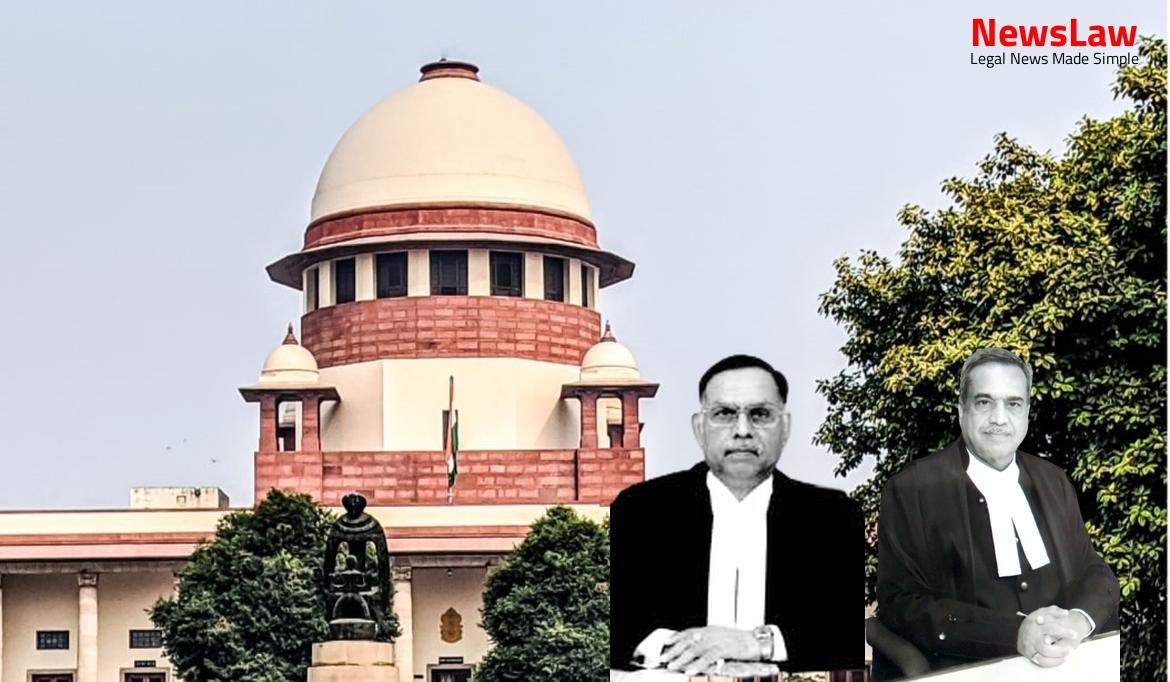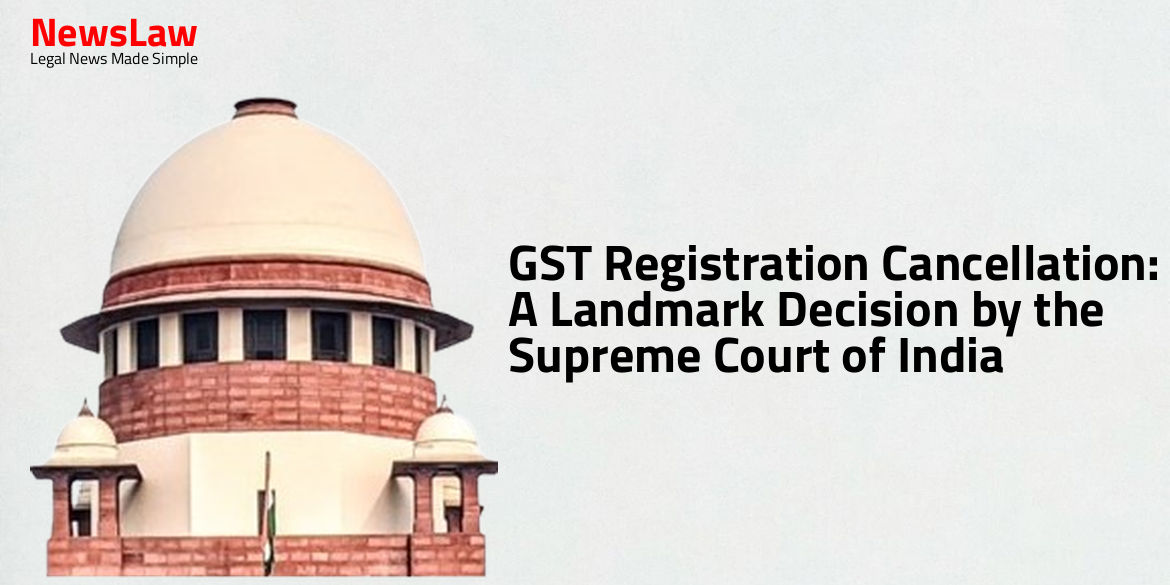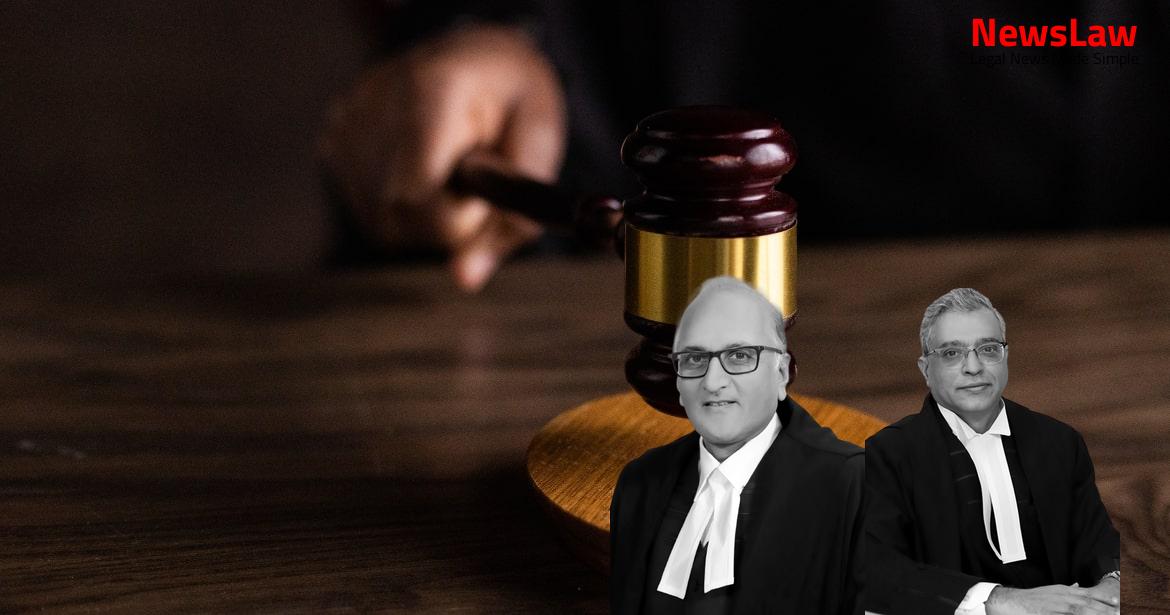The court’s legal analysis delves into the impact and legality of relief measures implemented during the COVID-19 pandemic. Key focus lies on the charging of interest during the moratorium period, with a deep dive into the implications on borrower rights and constitutional guarantees. Stay tuned to understand the intricate legal considerations surrounding financial relief decisions amidst the crisis.
Facts
- Notification dated 27.03.2020 issued by Reserve Bank of India allowed a moratorium of three months on payment of all instalments falling due between March 1, 2020 and May 31, 2020.
- The petitioner availed a home loan of Rs. 37,48,000 from ICICI Bank.
- The petitioner filed a writ petition under Article 32 of the Constitution seeking directions to declare the RBI notification ultra vires to the extent it charges interest on the loan amount during the moratorium period.
- Repayment schedule for loans will be shifted by three months after the moratorium period
- Residual tenor will also be shifted by three months
- Interest will continue to accrue on the outstanding portion of the term loans during the moratorium period
Also Read: Transfer of Writ Petitions for Chartered Accountants’ Tax Audit Guidelines
Arguments
- Petitioner argues that the Reserve Bank of India’s notification stating that interest shall continue to accrue on term loans during the moratorium period is ultra vires and defeats the purpose of the moratorium.
- Learned counsel for the petitioner expresses satisfaction with measures taken by the Government for borrowers.
- Petitioner believes the Central Government has the power under the Disaster Management Act, 2005 to grant relief on loans.
- Petitioner argues that while the RBI circular grants a moratorium, it does not provide substantial relief to borrowers.
- Petitioner states that due to the complete lockdown imposed by the Government because of the COVID-19 pandemic, there is no way to earn a livelihood.
- Petitioner seeks relief from the court by declaring the charging of interest during the moratorium period as ultra vires and hindrance to the right to life under Article 21 of the Constitution.
- Petitioner requests the court to direct the respondents to provide relief by not charging interest during the moratorium period.
- The Central Government and Reserve Bank of India have taken various measures to provide relief to sectors affected by the COVID-19 pandemic.
- The Central Government approved a decision to waive interest up to Rs.2 Crores in eight categories for the benefit of borrowers.
- Lending institutions have released an aggregate amount exceeding Rs.4,300 Crores to over 13.12 Crore accounts of borrowers under the relief scheme.
- The Reserve Bank of India has also followed up on the relief measures initiated by the Finance Ministry.
- A notification dated 23.05.2020 directed the repayment schedule for term loans to be shifted across the board.
- Commercial banks were directed to extend the moratorium by another three months due to the extension of the lockdown and disruptions from COVID-19.
- There is a concern raised regarding the imposition of interest during the moratorium period, which is seen as a hindrance to the right to life guaranteed by Article 21 of the Constitution.
Also Read: Analyzing Interference with Acquittal in Legal Conviction Case
Analysis
- The Central Government was conscious of the difficulties faced by various sectors and stakeholders during the COVID-19 pandemic.
- Policy decisions were taken to provide relief to specific borrowers, including waiver of ‘interest on interest’.
- Moratorium period was extended from 1.3.2020 to 31.8.2020 for eligible borrowers.
- Different sectors like MSME loans, education loans, housing loans, etc., were declared eligible for relief.
- The ex-gratia payment scheme aimed to provide relief by compensating the difference between compound and simple interest.
- Lending institutions were required to credit the difference to eligible borrowers’ accounts from 1.3.2020 to 31.8.2020.
- Eligibility criteria for borrowers included specific loan account segments with a limit not exceeding Rs. 2 crores.
- The scheme did not impose a legal liability on the Central Government but was a relief measure.
- Non-Banking Financial Companies had restructuring/resolution options for eligible accounts on a case-by-case basis.
- The Reserve Bank of India and Indian Bank Association were involved in implementing the scheme.
- Due to Unlock phases, economic activities gradually resumed, and the scheme aimed to support affected businesses.
- State Bank of India as a nodal agency communicated that over Rs. 4,300 crore was dispersed to borrowers under the scheme.
- The Union Cabinet approved the scheme on 21.10.2020, formalizing the policy decision for relief measures.
- Lending institutions could claim reimbursement from the Central Government for the ex-gratia payments made to borrowers.
- The scheme was carefully considered to address economic impacts and benefit specific classes of borrowers, including housing loans.
- Various lending institutions had policies in place for restructuring accounts as per RBI circulars.
Also Read: Interpretation of Wildlife Protection Act: Schedule I Species Identification
Decision
- The Union of India has taken specific measures as per circular dated 23.10.2020.
- Follow-up measures have also been taken in consequence of the circular.
- The writ petition is disposed with directions for implementation of the decision dated 23.10.2020 of the Government of India, Ministry of Finance.
- Respondents are directed to ensure that steps are taken to ensure benefits reach the intended recipients.
- All intervention applications and impleadment applications are disposed of.
Case Title: GAJENDRA SHARMA Vs. UNION OF INDIA (2020 INSC 662)
Case Number: W.P.(C) No.-000825 / 2020



